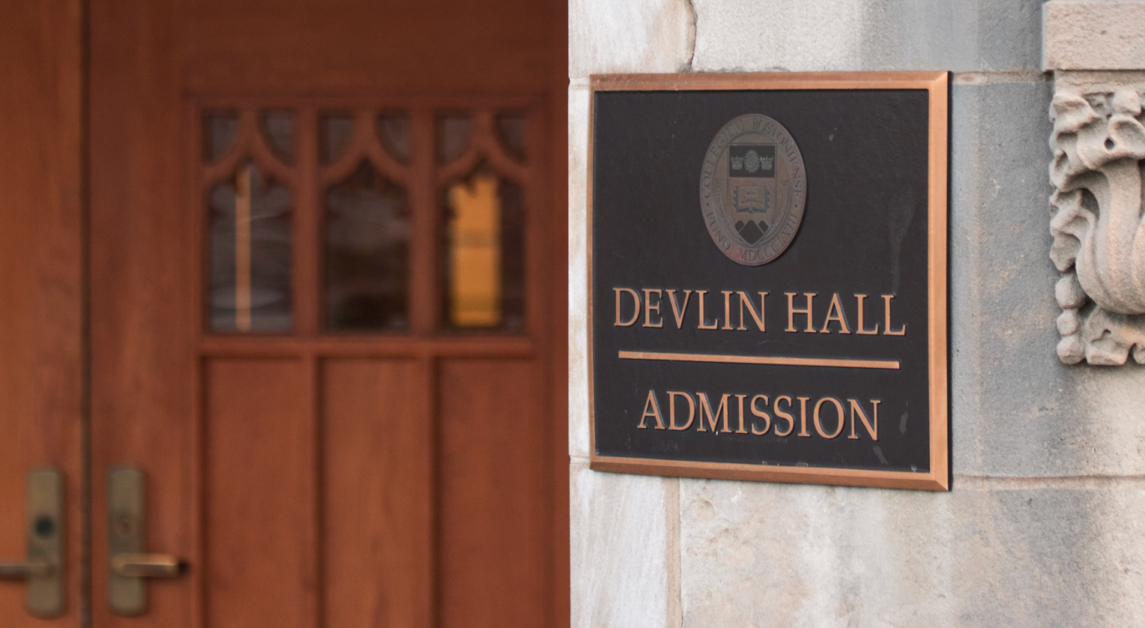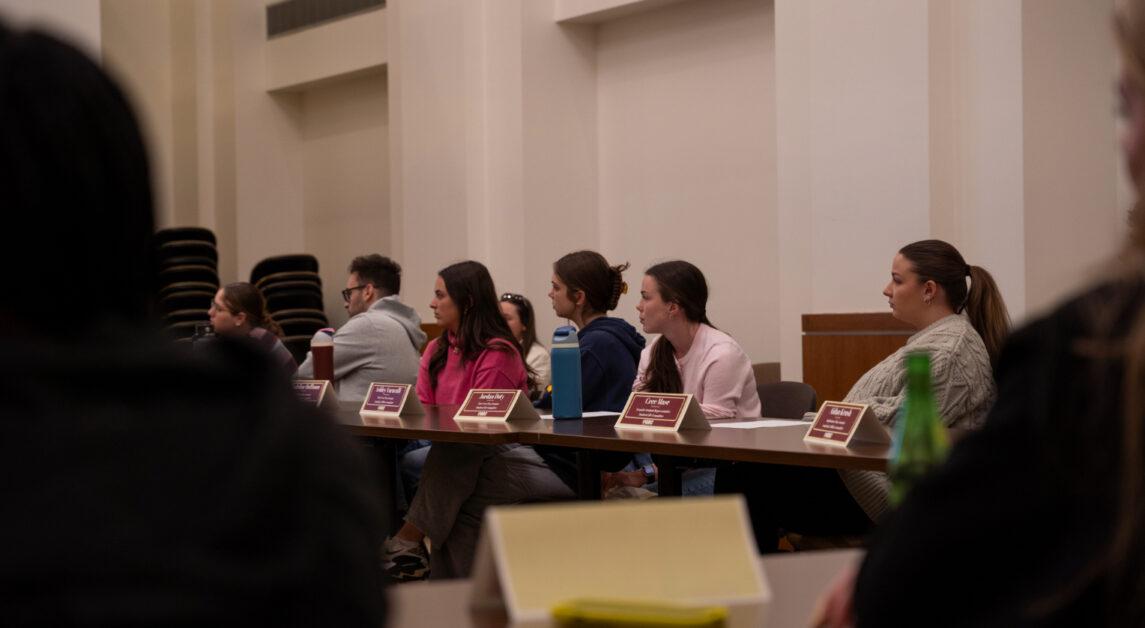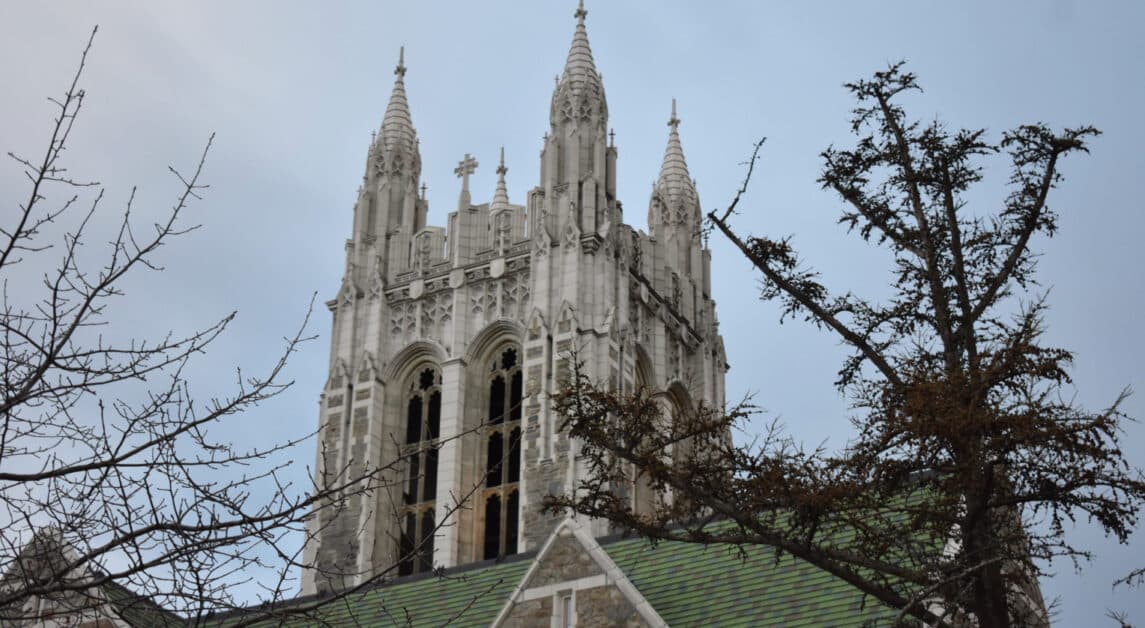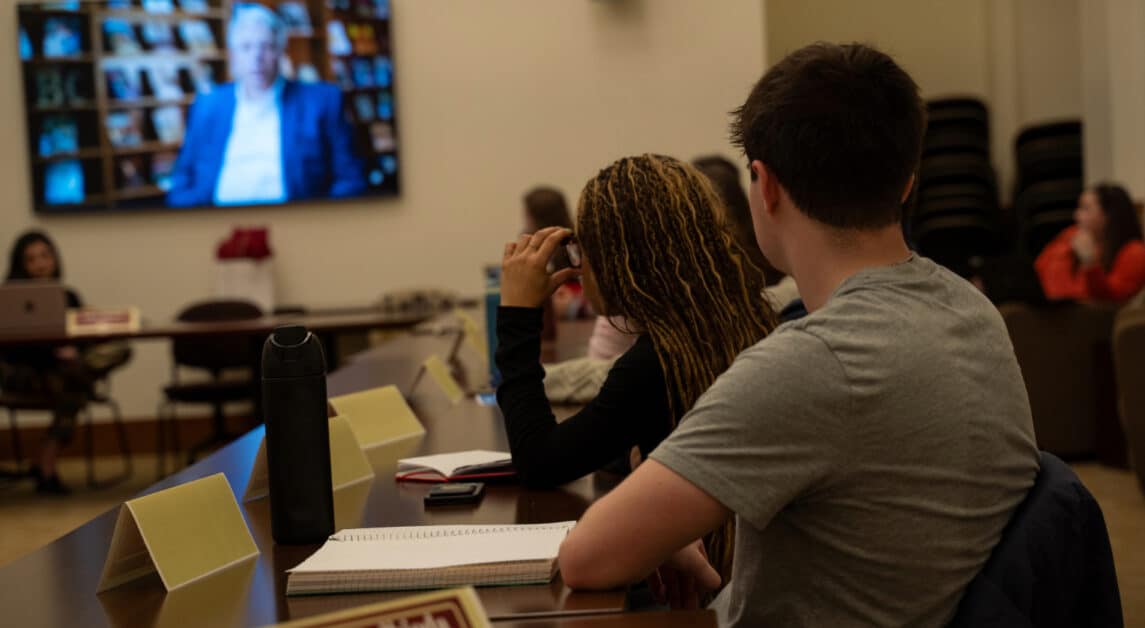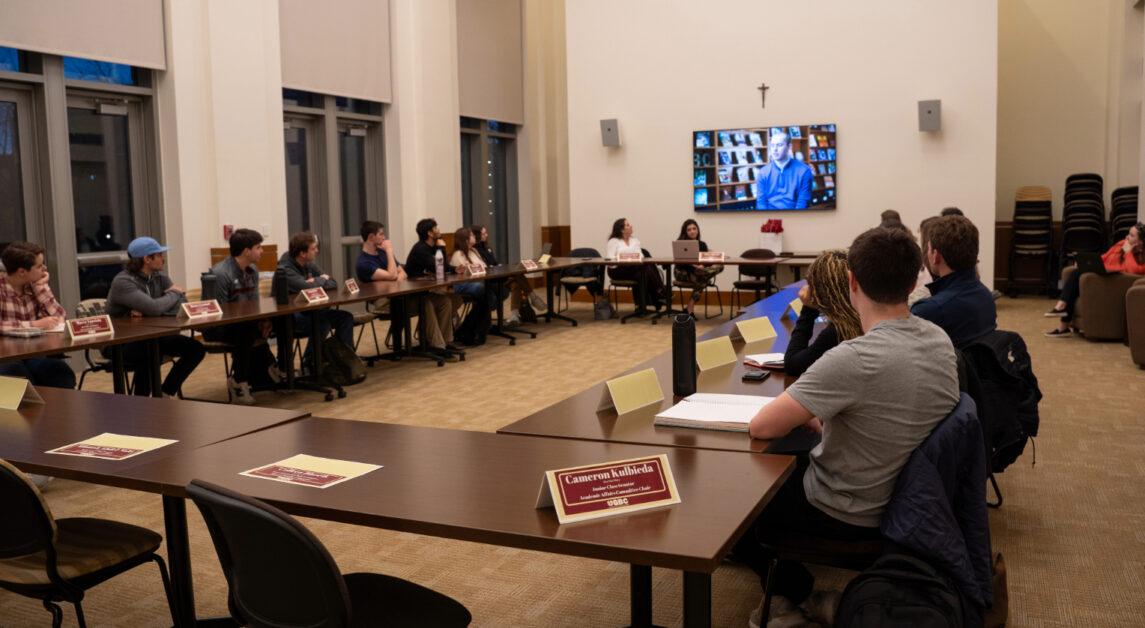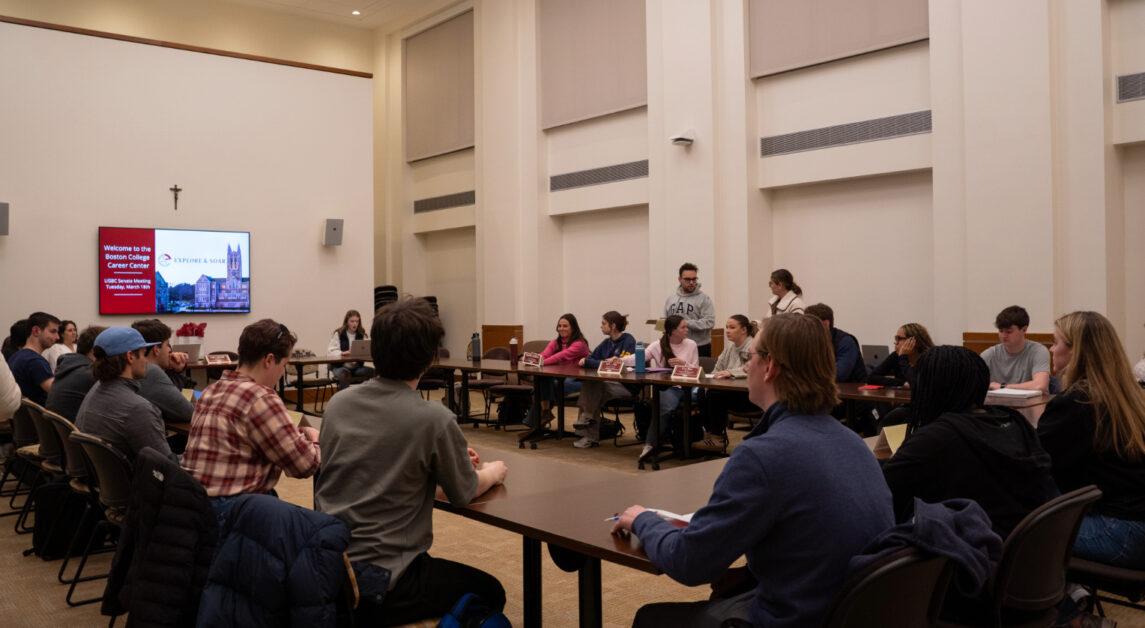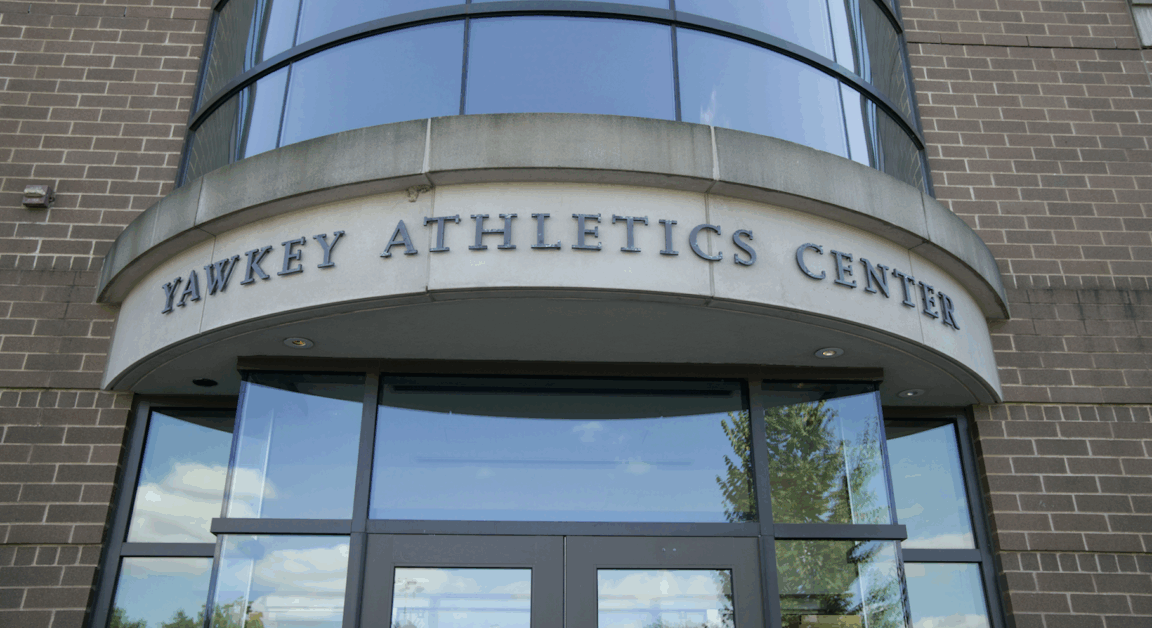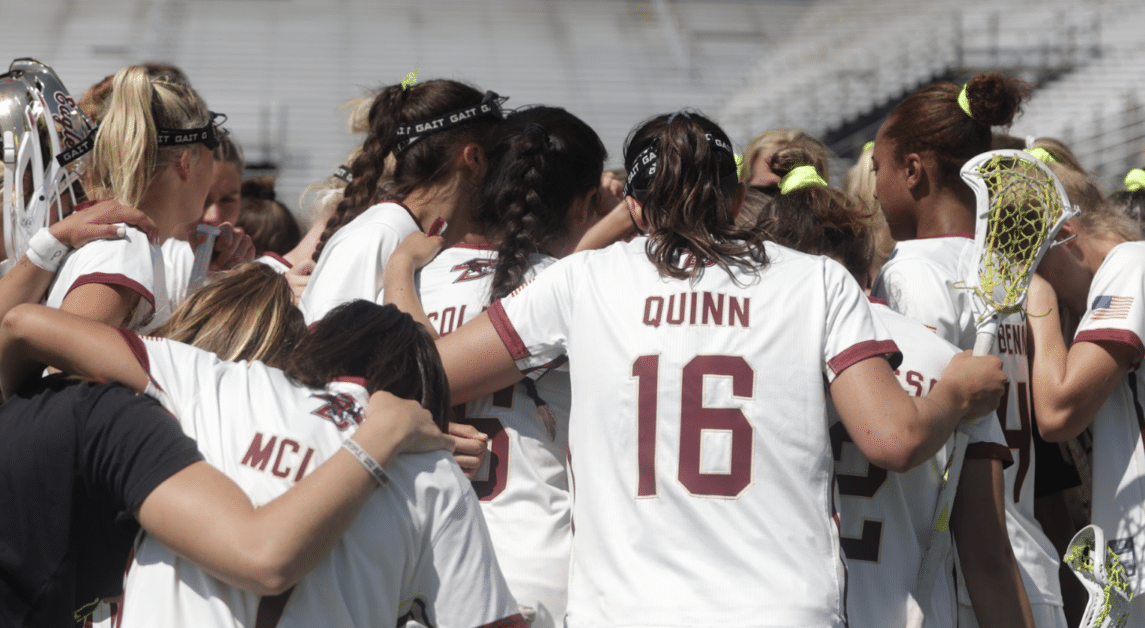But, BC is the only university in the Greater Boston area to omit its consideration of students’ alumni relations—granted to students with family who have attended or currently are attending the University—in its 2021–2022 Common Data Set.
“The use of legacy admissions, when practiced responsibly and as a part of a larger recruitment strategy, contributes to Boston College’s success in enrolling a student body from a wide range of backgrounds and talents,” Gosselin said in an email to The Heights.
The Common Data Set (CDS) is a collaborative document that compiles standardized data from participating higher education institutions concerning their demographics, student life, expenses, and admissions. According to the CDS website, every institution can choose what to include in its CDS.
“Each of the higher education surveys conducted by the participating publishers incorporates items from the CDS as well as unique items proprietary to each publisher,” the website reads. “Consequently the publishers’ surveys differ in that they utilize varying numbers of items from the CDS.”
While Harvard University, Tufts University, Wellesley College, Brandeis University, and the Berklee School of Music all revealed in the CDS that they consider alumni relations, the Massachusetts Institute of Technology and Northeastern University reported they do not.
According to Gosselin, BC did not report whether or not it considers “alumni/ae relation” due to the inherent ambiguity of the term. Gosselin also clarified that the consideration of “alumni/ae relations” does not extend to applicants who are siblings, cousins, grandchildren, nieces, or nephews of BC alumni.
“Neither responding to the prompt ‘alumni/ae relations’ as ‘considered’ or ‘not considered’ would have been an accurate response to that broad category,” Gosselin said.
Peter Arcidiacono, a professor at Duke University and testifying expert in the upcoming Supreme Court affirmative action case, said he better understood the impact of legacy admissions after conducting research that examined admission preferences for legacy and athlete students at Harvard University.
“I think there are definite benefits to legacy admissions in the context of loyalty to the university and things of that nature,” Arcidiacono said. “For myself, the distrust it creates in the system, you know, outweighs that.”
Arcidiacono said universities that consider legacy status want to keep their admissions processes as secretive as possible to avoid public scrutiny.
“Because if you have the legacy admissions in part to get more donations and such, you know, the fact that those donations are tax deductible seems a little odd,” Arcidiacono said. “I think if the public was really aware of what was happening with legacy admissions, there’d be a lot more scrutiny.”
Gosselin said colleges with highly selective admission processes, like BC, can consider legacy status without diminishing the academic quality of the students they select.
“Most colleges and universities strive to keep alumni/ae connected and engaged with the institution for a variety of reasons, not the least of which is that these accomplished and successful individuals might inspire talented young people to explore the colleges they attended,” Gosselin said.
But the issue of legacy admissions becomes more complicated with religiously affiliated universities like BC, according to Arcidiacono. He said that both legacy and religious preferences disproportionately favor “rich and white” applicants.
“I don’t have a problem with a Catholic school giving preferences for Catholics because they’re trying to create a particular culture, you know, where religion is seen in a positive light,” Arcidiacono said. “I don’t see that same sort of argument with regard to other sorts of legacy admissions, particularly one that, say, strongly correlates with class.”
Madeline Chang and Jesse Julian, both MCAS ’26, said they did not know BC considered legacy status when they applied to the University. Although they both said they did not feel personally impacted by this admission factor, Chang and Julian said they believe legacy preferences may create unfairness in undergraduate admission.
“If you have students who are getting in that aren’t qualified to attend the school and are just getting in because of their legacy, I think that’s entirely unfair to other students who are more qualified, and just didn’t have a parent who had the privilege of going to college,” Chang said.
Following the ‘Varsity Blues’ college admissions scandal—where dozens of wealthy families used bribes and false achievements to get their children admitted into elite colleges—a 2020 Wall Street Journal report found that between 2004 and 2020, the percentage of the nation’s top 250 institutions that considered legacy as an admission factor dropped by seven percent.
Julian said this shift away from legacy consideration helps promote applicants’ merits, rather than allowing them to rely on family connections.
“It also helps immigrant families and new families get into the system, so [college] is not just limited to the upper-class families that have already been going for generations,” Julian said.
Nnenna Okorie, MCAS ’26, also said eliminating the consideration of legacy status allows universities to focus more on the individual applicant.
“I feel like if your parents went to the school you’re applying to and if the school doesn’t consider that as a factor in admissions, that’s just showing how much the school sees you as a person and not as a child of your parents, if that makes sense,” Okorie said.
Especially with the possible overruling of affirmative action, Arcidiacono said he hopes more universities consider eliminating an applicant’s legacy status as a factor in the admissions process.
“If affirmative action falls, I think legacy preferences have to fall,” he said. “it would not be sustainable to not allow for racial preferences, but then give big bumps for the children of alumni.”
Gosselin said that while BC considers if a student has an alum parent, the University still equally prioritizes attracting students from all ends of the socioeconomic spectrum. The University’s recent partnership with Questbridge—a non-profit program that helps high-achieving, low-income students gain admission and scholarships—is one example of this larger strategy, Gosselin said.
“Our recent partnership with QuestBridge is one example of this larger strategy,” Gosselin said. “Through our QuestBridge partnership, we identify high-achieving students who thrive at Boston College, but would be unable to afford to attend without significant financial aid.”
The enrollment of each entering class is a highly complex process that requires a multifaceted recruitment strategy—and colleges do not focus on just one population of students, according to Gosselin.
“The composition of Boston College’s undergraduate population today (35% AHANA, 10% international, 13% Pell Grant recipients, 11% first generation, 48 states and 66 foreign countries) provides evidence that diversity is not diminished by the enrollment of legacy students,” Gosselin said.
Julian said she appreciates BC’s efforts to bridge possible connections to first-generation applicants and acknowledges the difficulty of balancing the University’s acceptance of first-generation and legacy applicants.
“If we’re finding that more people who come from BC legacies are applying than there are first gen, then it’s hard to find that balance because I don’t want to cut off people just because they have a legacy at that point,” Julian said.
Thinking ahead toward the future of admissions—especially with the Fair College Admissions for Students Act and other bills that oppose the consideration of legacy status—Arcidiacono said he is optimistic that unfair admissions can be constrained.
But, even if restrictions are placed on legacy preferences, Arcidiacono said universities need to be more transparent about their data.
“The more secretive it is, the more you can favor the groups that you want to favor, you know,” Arcidiacono said. “Yeah, I think in my view, a much better system is to have everything be much more [transparent].”
Update (2/27/23, 12:01 p.m.): This article has been changed to update the definition of legacy relations.
Update (2/27/23, 3:28 p.m.): This article has been changed to move the sentence “Gosselin also clarified that the consideration of ‘alumni/ae relations’ does not extend to applicants who are siblings, cousins, grandchildren, nieces, or nephews of BC alumni” from the 13th to the seventh paragraph for clarification.
Correction (3/1/21, 3:36 p.m.): A quote from Gosselin has been corrected to say “The use of legacy admissions, when practiced responsibly and as a part of a larger recruitment strategy, contributes to Boston College’s success in enrolling a student body from a wide range of backgrounds and talents.”

